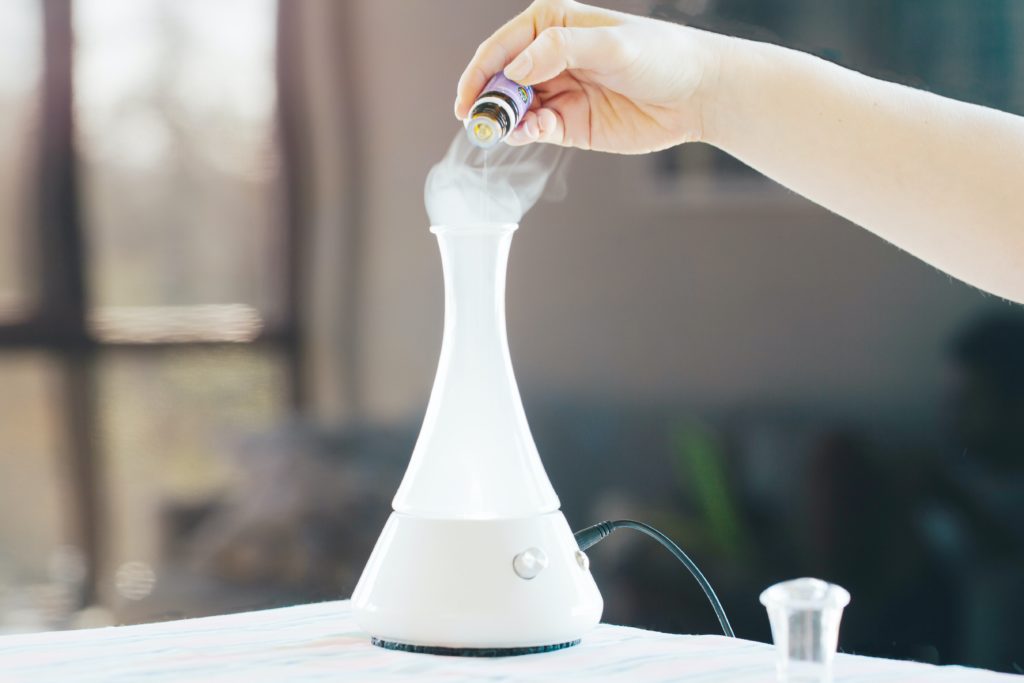If you are new to the use of pure essential oils, you may be wondering: can you use any oil in a diffuser? Are there some oils that are bad to use in a diffuser?
These days, there are tons of articles and videos online that feature the value of diffusing pure essential oils. But certain harmful or ineffective practices have taken hold.
While oil diffusion is a healthy practice, the oil that should be diffused is not just any oil. Read on to find out why.
Can You Use Any Oil In A Diffuser If You Want To?
There are different types of oils. But pure essential oils are the only ones recommended by aromatherapists.
You can’t use any oil in diffusers because you will not experience the unique effect and benefits of organic compounds. There is a reason why aromatherapists recommend only essential oils for diffusion.
You can’t use any oil in diffusers because you will not experience the unique effect and benefits of organic compounds. There is a reason why aromatherapists recommend only essential oils for diffusion.
You see, pure essential oils are of different types. But they all have rich organic compounds that provide soothing relief and a calming effect on the body and sense organs.
Unfortunately, not every oil has these compounds. So diffusing just any oil in your diffuser will not cut it.
Another reason not to use just any oil in your diffuser is that the different types of diffusers have different methods of dispersing oils into the air. Diffusing your Canola oil will not give you the soothing effect you crave, though!
To buttress our point, let’s see how the various diffusers work.
Types Of Essential Oil Diffusers and How They work
An essential oil diffuser breaks down oils into small molecules. It then disperse them into the air for a pleasant and calming effect. The effect is not because of the diffuser itself, but the diffused oil.
The essential oil diffuser is merely a vehicle of dispersal and nothing more.
Here are the common types of essential oil diffusers:
1. Nebulizers
- LOXIM Technology - Innovation Atomize...
- Comfortable&Convenient - Without dilute...
- Super Quiet - Operates at a noise level...
- Powerful&Protable - Potent aroma covers...
- Sleek&Modern - With a chic and...
Last update on 2024-07-10 / Affiliate links / Images from Amazon Product Advertising API
A nebulizer forces streams of high-pressure air through tiny tubes. It turns into mist once they exit the tubes. Essential Oil Nebulizers don’t use water or heat to diffuse, so the effect of the oil hands in the air for much longer.
If you diffuse the wrong oil, at best, it will have no effect. At worst, it may cause everyone in the house harm if it is toxic.
2. Ultrasonic Diffuser
- The Complete Bundle - Our Essence...
- Ancient Therapies Delivered As Intended...
- 10 Essential Plant Oils - Our Top 10...
- No Additives or Fillers - Absolutely...
- What's Included – 1 ultrasonic essence...
Last update on 2024-07-10 / Affiliate links / Images from Amazon Product Advertising API
An ultrasonic essential oil diffuser uses electricity for oil dispersal. It breaks down the roil into smaller particles and tiny molecules that are negatively charged. The negative molecules then interact with positive molecules in the air.
Diffusing just any oil may not lead to a positively charged molecule that will calm sensory organs. If you try to diffuse the wrong thing, you may clog up your diffuser. It may start making noise, and you’ll have to clean it out.
We’ve looked at several excellent Ultrasonic Diffusers here.
3. Evaporative Diffusers
An evaporative essential oil diffuser may be either active or passive. This type uses a small blower fan to transport essential oils soaked in an internal pad. A diffuser also generates the right amount of energy to cause evaporation in the air.
If you use the wrong oil, as some cooking oils, Vanilla extract, etc., that are much heavier, evaporation may be slow or not happen at all.
4. Heat Diffusers
Heat diffusers use heat to disperse pure essential oil for evaporation.
Although it is similar to an evaporative diffuser that disperses essential oils the difference is that it does not use a fan but a direct heat source like a candle wick.
Some of the common diffusers in use may either not diffuse just any oil, but even if they do, the oils will have no soothing effect on you.
The main purpose of diffusing essential oils is to harness their organic benefits for wellness. These oils affect the brain and nerves. They help you relax and even sedate you into sleeping.
People with mild or chronic sleep disorders or those who suffer from stress will derive immense benefits from diffusing only pure essential oils in a diffuser.
Types Of Essential Oils You Should Use In A Diffuser
Now that you know that not all oils or fragrance oil are meant for diffusers which ones should you use? The simple answer is pure essential oil.
Only essential oils designed for diffusion should be used in your diffuser. Nature has blessed us with so many, and many high-quality companies that make these oils. Very popular essential oils in use today include
- Lavender oil
- Peppermint oil
- Tea Tree oil
- Clove Oil
- Myrrh oil
- Frankincense oil
- Bergamot oil
Conclusion
Can you use any oil in a diffuser? You’re only going to get a positive effect by using actual essential oils. Diffusing carrier oils like olive oil and coconut oil probably won’t harm anything, but could potentially damage your diffuser.
Stick to the real stuff and keep it simple!








